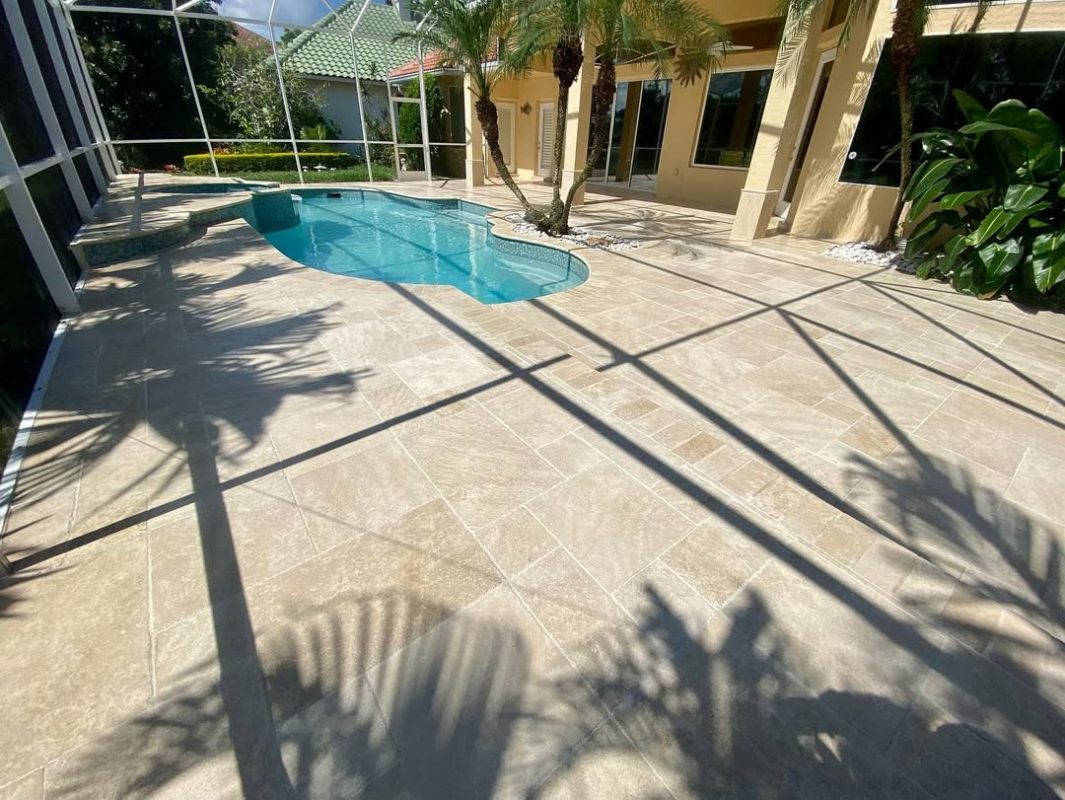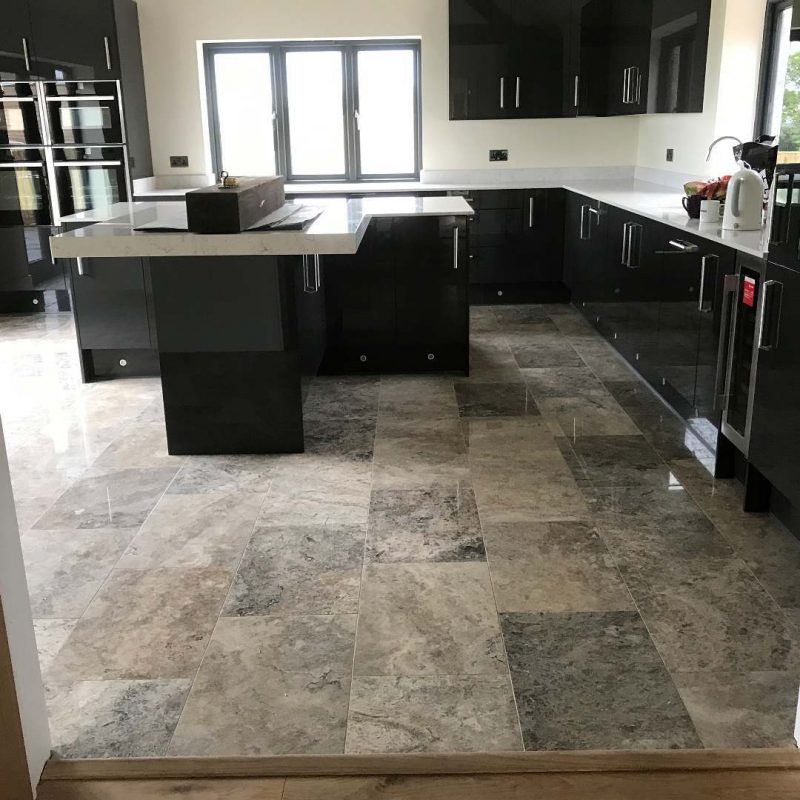A poolside area’s natural stone choice determines not only its appearance but also its usefulness. Perfect for pool surrounds are natural stones since they provide heat control, slip resistance, and durability. This book helps you decide by looking at the best natural stone choices and their advantages.
Why Use Natural Stone Around Pools?
For poolside settings, natural stones offer a mix of elegance, resilience, and utility. They naturally cool, unlike synthetic materials, so guaranteeing a comfortable surface even on hot summer days. Many natural stones have non-slip characteristics, so lowering the possibility of mishaps close to the pool. They are also a long-lasting fix since they oppose weather and water.
Natural stone’s adaptability for design is still another benefit. These stones, which come in several colors, textures, and finishes, can accentuate modern, rustic, or opulent outdoor design. Selecting the correct stone guarantees that your poolside area stays beautiful, safe, and useful for many years.

Travertine: The Best Choice for a Cool and Slip-Resistant Surface
Because of its naturally occurring slip resistance and heat-reflecting qualities, travertine is among the most often used materials for pool decks. For warm climates, this stone is great since it stays cool underfoot even in great heat. Its porous surface offers great grip, so lowering the likelihood of wet slip-off.
Travertine also comes in beige, ivory, and walnut, which lets it fit very well with many outdoor designs. Its resistance to water absorption and stains is improved by proper sealing, so guaranteeing long-term durability.
Limestone: A Soft and Elegant Poolside Option
A sophisticated selection for poolside areas, limestone provides a soft texture and elegant look. Its light color range reflects sunlight, so maintaining the surface’s comfort for walking on. Natural grip of limestone is also well-known, which helps to lower slip and fall risk.
Still, limestone is a rather soft stone, thus it needs appropriate sealing and maintenance to stop discoloration and erosion. Its beauty will be preserved by regular cleaning with mild soap and avoidance of strong chemicals.
Granite: The Most Durable and Weather-Resistant Stone
Granite is a great choice for people looking for remarkable lifetime. For pool decks used extensively, this stone is quite resistant to water, heat, and severe weather. Granite’s strong composition stops moisture absorption, so lowering the lifetime risk of damage.
Granite has finishes ranging from polished to honed to flamed. Poolside areas should get a flamed finish since it improves slip resistance and offers a textured surface for improved grip. Although granite is more costly than other stones, its low maintenance and lifetime make it a wise purchase.
Sandstone: A Natural Look with High Slip Resistance
For pool surrounds, sandstone is a pleasing and useful option. Being one of the most slip-resistant stones, it has a naturally textured surface. Families with children or areas of regular water exposure will find this function perfect.
Sandstone’s warm colors—golden yellows to earthy browns—create a natural and inviting atmosphere all around the pool. Sandstone is porous and fast water absorption allows, thus sealing is essential to stop water damage and algae development.

Marble: Luxury and Style for Pool Surroundings
Marble is a first choice for a high-end, opulent look. It’s a great accent to any poolside area because of its flawless, sophisticated surface and rich veining designs. Marble reflects heat well, so keeping the surface cool, and comes in light tones including white, cream, and soft grays.
Marble, however, needs careful treatment if it is to keep its beauty. For safety, it is more likely to scratch and can get slippery when wet; hence, an honed or textured finish is advised here. Its lifetime and visual appeal are preserved in part by regular sealing and appropriate cleaning.
How to Maintain and Protect Poolside Natural Stones
Use these basic maintenance guidelines to help your natural stone pool deck last:
- Regular sealing of the stone helps to guard against weather damage, moisture absorption, and stains.
- Avoid strong chemicals that could erode the stone; clean the surface with mild, pH-neutral soap.
- Should the stone surface get too smooth over time, apply a non-slip treatment.
- Eliminate standing water to stop the growth of mold or algae, so influencing appearance and safety as well.
- Quickly inspect and fix little cracks to stop more damage.
Your natural stone poolside area will remain beautiful, safe, and long-lasting by using these easy care guidelines.
